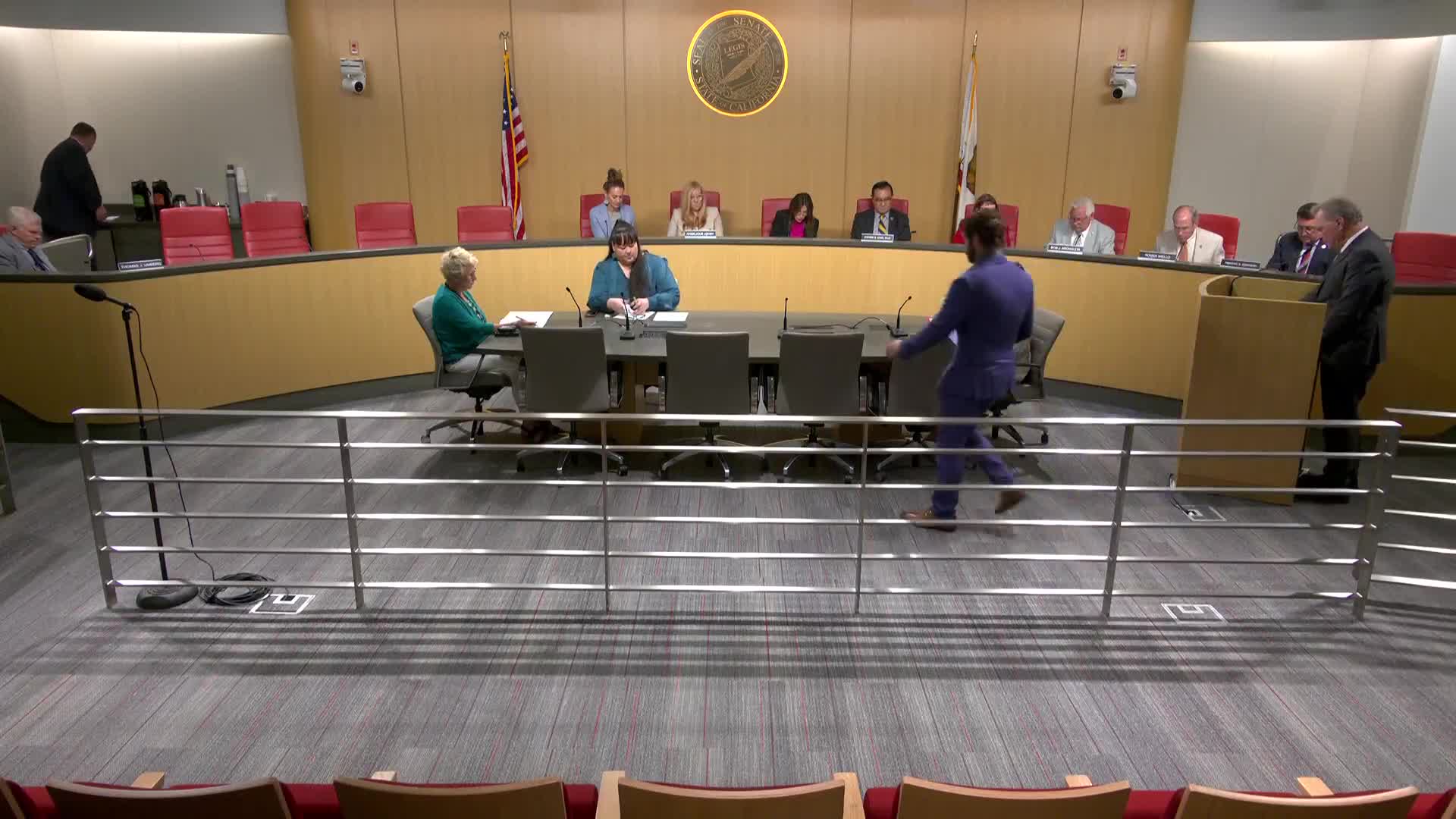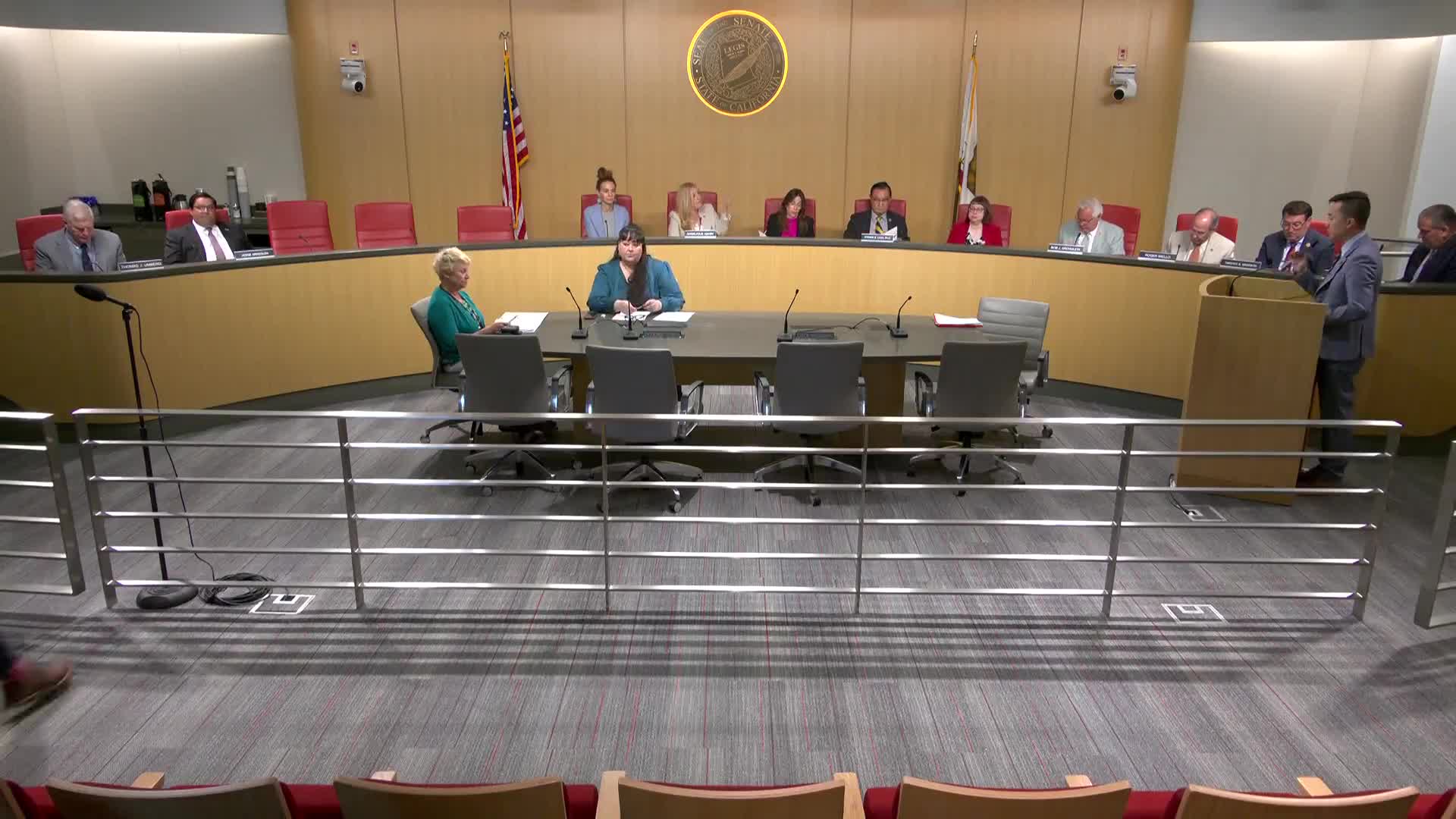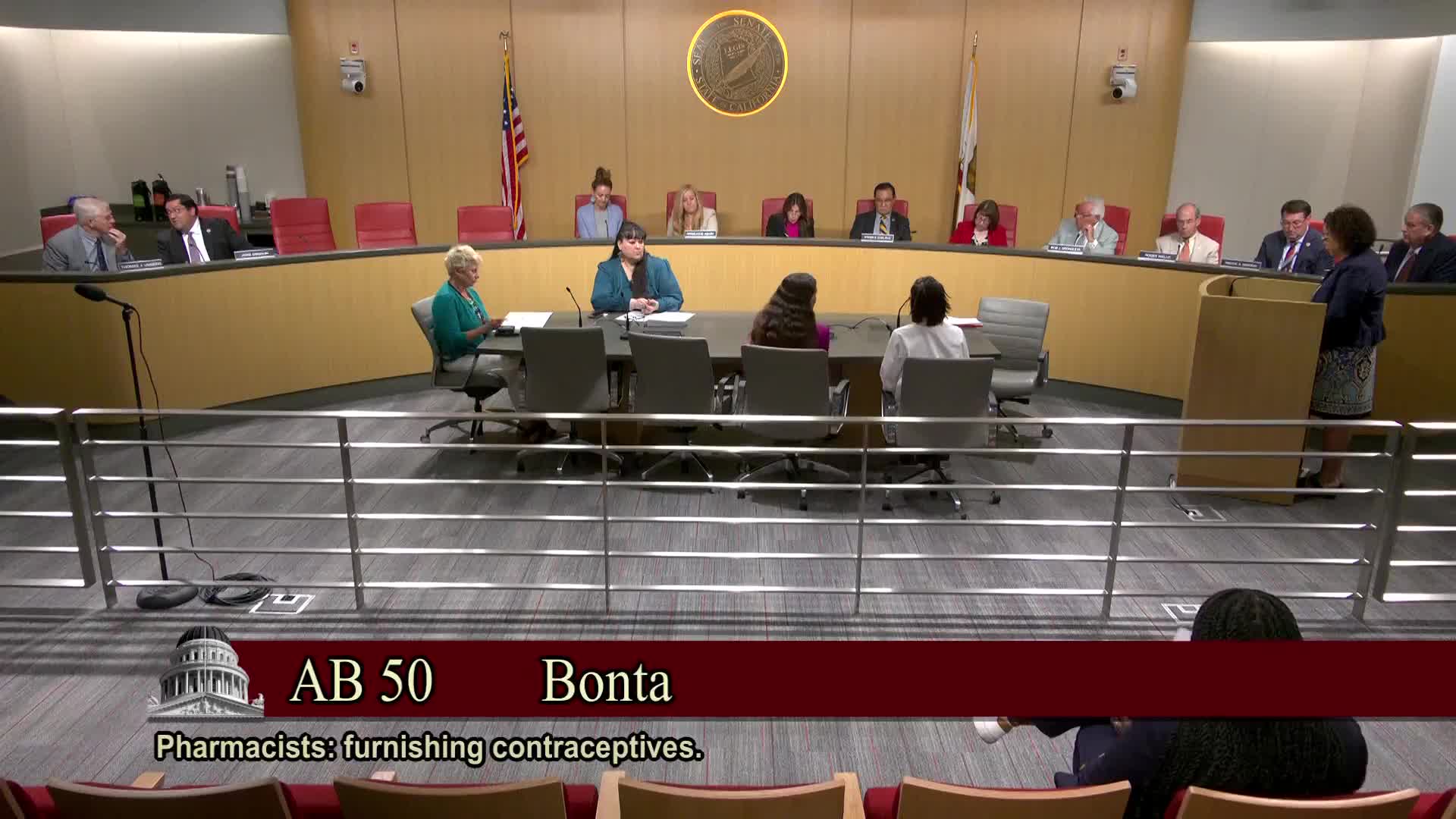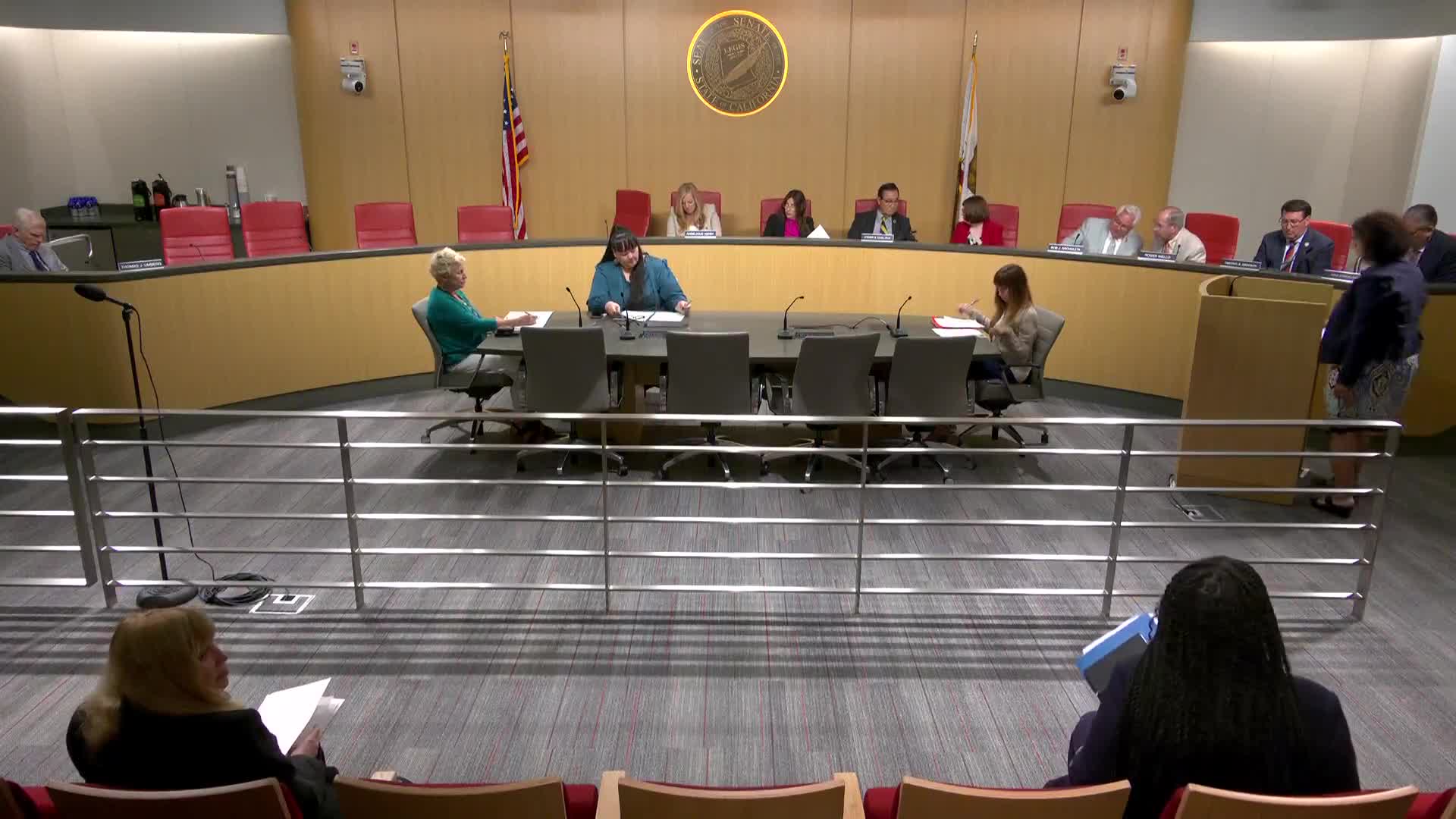Article not found
This article is no longer available. But don't worry—we've gathered other articles that discuss the same topic.

Senate committee hears SJR 6 urging protection of federal infrastructure and clean‑energy funds

Committee hears AB 631 on shelter and rescue reporting but pauses bill after opposition

Senate committee forwards AB 516 to clarify veterinary technician and assistant duties

Committee advances AB 226 to let FAIR Plan access bonds, loans amid insurance market strain

